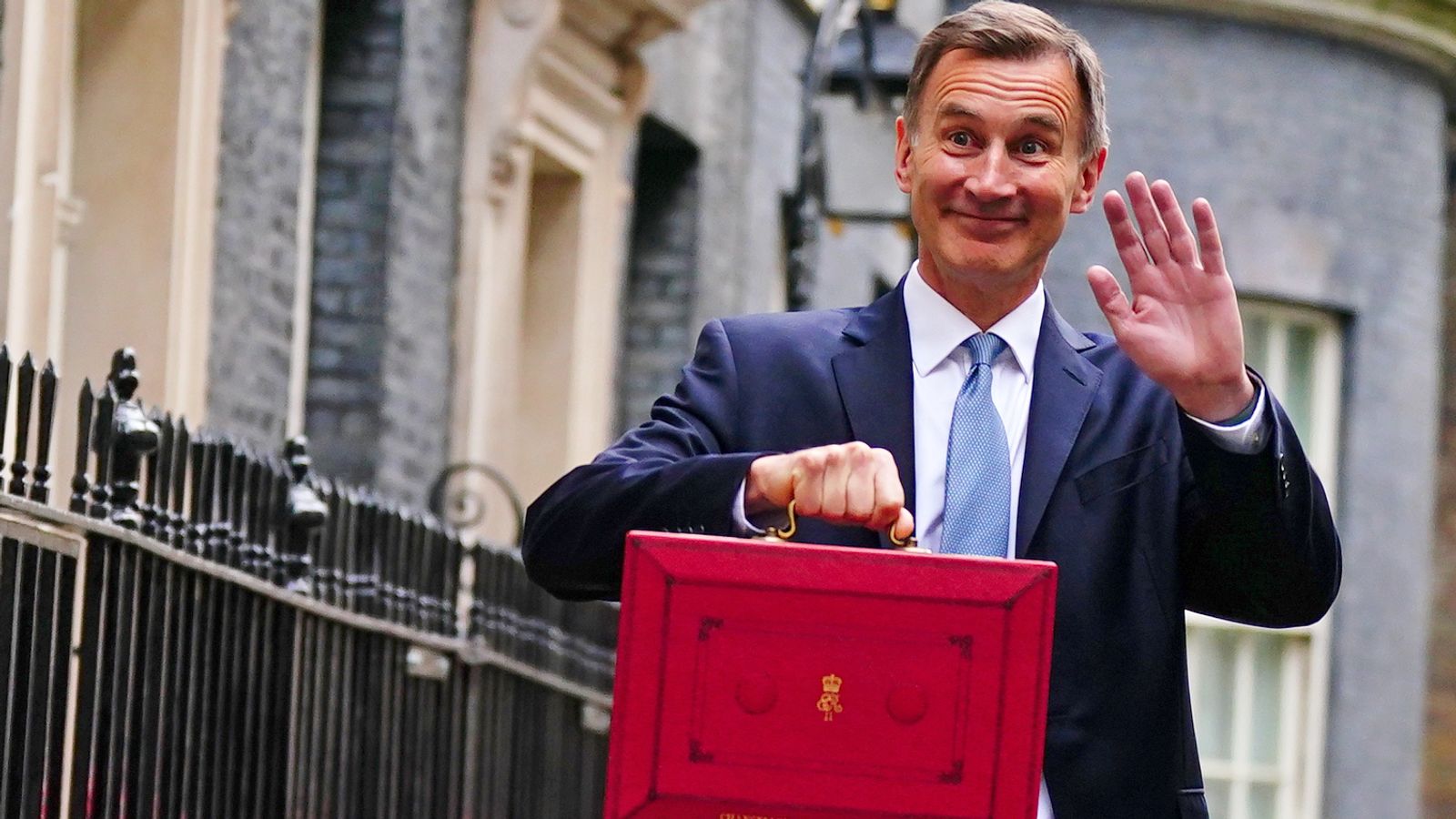Chancellor Jeremy Hunt will launch a major reform of the UK’s financial sector, with plans to rip up red tape and replace a number of EU regulations.
Mr Hunt said the changes, to be announced in Edinburgh later, will “turbocharge” growth as the country struggles with a sluggish economy and a cost of living crisis.
He said: “This country’s financial services sector is the powerhouse of the British economy, driving innovation, growth and prosperity across the country.
“Leaving the EU gives us a golden opportunity to reshape our regulatory regime and unleash the full potential of our formidable financial services sector.”
The chancellor will outline more than 30 regulatory reforms, with hundreds of pages of EU rules to be reviewed, repealed, and replaced, ranging from disclosure for financial products to prudential rules governing banks.
Among the rules in the spotlight is “ring-fencing” – the regulation that requires major banks to keep investment and retail banking separate.
This rule was brought in during 2019 and, according to the Bank of England, was designed to “increase the stability of the UK financial system and prevent the costs of failing banks falling on taxpayers”.
But the reforms would see banks released from the requirements if they do not have major investment activities.
Read more:
Which sectors are affected by strikes and why
Rise in computer professions as manufacturing jobs decline
Banks have previously pushed for the rule to be axed or for the deposit threshold that triggers it to be raised.
London is under pressure after being overtaken by Amsterdam as Europe’s top share-trading centre, and the EU is updating its own financial rules to reduce what remains of its reliance on the city.
Click to subscribe to the Sky News Daily wherever you get your podcasts
Bank of England director Phil Evans said on Wednesday that being a global financial centre brings a number of benefits to the British economy, but it also brings responsibilities such as resisting pressure to “cut standards in the short term”.








